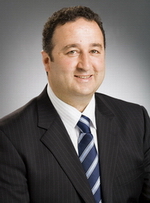**********************************************************************************************









East Africa Famine Appeal Speech of Hon.Shaoquett Moselmane at the NSW Parliament on 24th August 2011
The Hon. SHAOQUETT MOSELMANE [6.35 p.m.]: In this article, "Somalia famine: There is no longer any excuse for inaction", Xan Rice, a Guardian reporter, writes:
Khadija Aliow Mohamed sits silently in the sand
inside her tiny twig igloo, staring at the small bundle wrapped in a red
and blue shawl on the bed. The 20-year-old Somali walked for 30 days
with her two-year-old daughter, Madina, to get to this refugee camp in
northern Kenya a few weeks ago.
Hungry and exhausted, the family escaped the worst drought in southern
Somalia in decades. But while Khadija regained her strength in Dadaab,
the world's biggest refugee settlement, Madina, her two year old, did
not. Just an hour after the UN declared a famine in two regions of
Somalia, Madina died. Her mother, who is pregnant, is too shocked to
talk.
The call for aid always comes too little too late for many like baby
Madina. Governments drag their feet and whatever action they take comes
too little too late for hundreds and thousands, if not millions.
A massive drought, failed harvests, rising food prices and conflict has
hit the Horn of Africa and the people are fleeing to refugee camps in
their thousands. An estimated 11.6 million people are now in need of
humanitarian assistance in Somalia, Kenya, Ethiopia and Djibouti.
Aid agencies and governments were for some time aware that food would
run out, and animals were dying and crops failing. Yet, they only began
the call for help, when children began to die.
Fran Equiza, Oxfam's regional director, as quoted
in the article by Xan Rice, notes that "there is no time to waste if we are
to avoid massive loss of life. We must not stand by and watch this tragedy
unfold before our eyes. The world has been slow to recognise the severity of
this crisis, but there is no longer any excuse for inaction." In some
regions of Somalia, more than half the children are suffering from acute
malnutrition and the death rates are climbing. Around 3.7 million
people—almost half of the Somali population—are now facing severe food
shortages. "Somalia is facing its worst food security crisis in the last 20
years," said Mark Bowden, the UN official in charge of humanitarian aid
there. He added that "this desperate situation requires urgent action to
save lives."
Other countries in the region, in particular Ethiopia and Kenya, are also
facing a crisis because of the failure of rains in pastoralist areas—the
worst situation for 60 years in some places—as well as soaring food prices
and longer-term issues such as underdevelopment, internal civil strife and
high population growth. John Vidal from the Guardian, in his article,
Famine we could avoid, noted:
Fifty or so years ago, the region had regular 10-year climatic cycles which were mostly followed by a major drought, and now the droughts are coming more frequently and are lasting longer ... in the 1980s they came about every five years and in the 1990s every two or three. Since 2000 there have been three major droughts and several dry spells, this one being not the worst, just the latest.
But to claim the reason for this crisis is drought alone is incorrect. John Vidal maintains:
The 10 million people who the governments warn are at risk of famine this year are the same 10 million who have clung on in the region through the last four droughts and were mostly being kept alive by feeding programs.
Governments and international humanitarian and
financial institutions must help now. They must develop plans to help poorer
nations provide for the poor and adapt to the hotter, drier conditions they
face and provide the necessities of survival. They require such things as
better pumps and boreholes, better vaccination of cattle, help with
education, food storage and transport. The president of the International
Fund for Agricultural Development, in an article titled "Africa can feed the
world," argues that money should be put into long-term development instead
of emergency aid and feeding programs that keep people just above
starvation. This tragedy could have been avoided.
<26>
He maintains:
We found a community willing to transform their lives by harvesting rainwater, using biogas, terracing mountain slopes. There are crops for livestock, they are growing vegetables, wheat and maize, and generating income that allows them to build resilience.
Now urgent donations to any humanitarian
organisation—whether it is the Red Cross, UNICEF, Union Aid Abroad or
Australian People for Health, Education and Development Abroad—are
desperately needed. Although $1 billion is required only $200 million has
been pledged. Please donate and help those children in need.